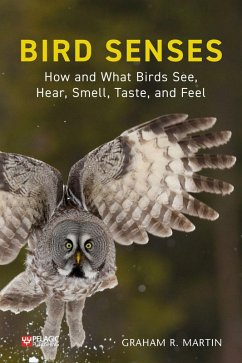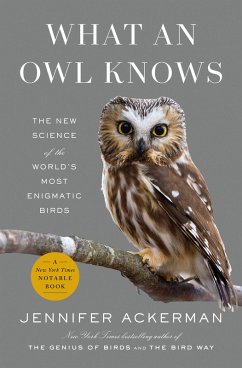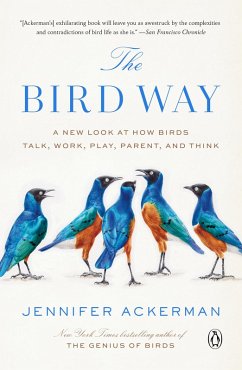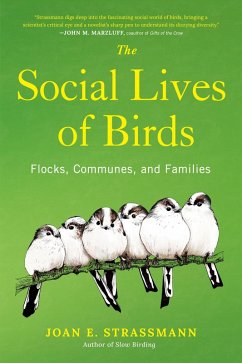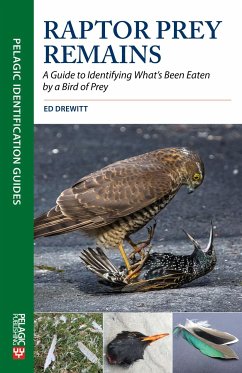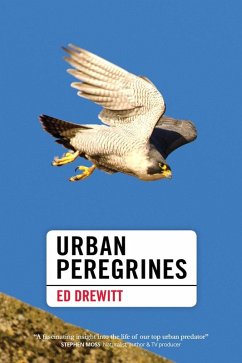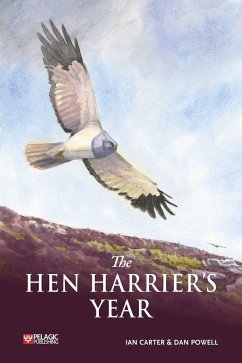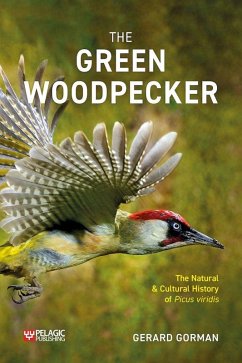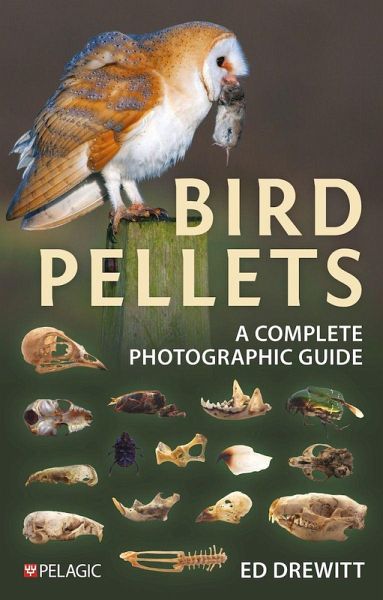
Bird Pellets (eBook, ePUB)
A Complete Photographic Guide
Versandkostenfrei!
Sofort per Download lieferbar
30,95 €
inkl. MwSt.
Weitere Ausgaben:

PAYBACK Punkte
15 °P sammeln!
This book is the first comprehensive guide to bird pellets, the undigested remains of food that form together into a ball or sausage-like shape and are regurgitated. It showcases the range of pellets that different bird species produce, including owls, hawks, falcons, corvids such as ravens and magpies, as well as waders - and even garden birds! The common items found in them, such as small mammal skulls and bones, are analysed in detail, with the discussion accompanied by numerous colour illustrations.The book progresses methodically from an introduction to pellets, covering what they are and...
This book is the first comprehensive guide to bird pellets, the undigested remains of food that form together into a ball or sausage-like shape and are regurgitated. It showcases the range of pellets that different bird species produce, including owls, hawks, falcons, corvids such as ravens and magpies, as well as waders - and even garden birds! The common items found in them, such as small mammal skulls and bones, are analysed in detail, with the discussion accompanied by numerous colour illustrations.
The book progresses methodically from an introduction to pellets, covering what they are and how they are formed, to instructions on dissection and analysis and how this can be used in research, followed by a closer look at the pellets of each bird species in turn - from the golden eagle to the dipper. We learn how to identify the remains of small mammals including bats, as well as reptiles, amphibians, fish, invertebrates and of course other birds.
Dissecting bird pellets and identifying what is inside can be an important tool for discovering what birds are feeding on as part of more detailed diet studies. It is also an activity often delivered at family-friendly events or in schools by wildlife organisations. Extracting information from pellets also has sound scientific value: while it does not capture everything a bird has been eating, it still goes a long way in revealing the diet of birds and how this may change over time, in different habitats and different parts of the world.
The book progresses methodically from an introduction to pellets, covering what they are and how they are formed, to instructions on dissection and analysis and how this can be used in research, followed by a closer look at the pellets of each bird species in turn - from the golden eagle to the dipper. We learn how to identify the remains of small mammals including bats, as well as reptiles, amphibians, fish, invertebrates and of course other birds.
Dissecting bird pellets and identifying what is inside can be an important tool for discovering what birds are feeding on as part of more detailed diet studies. It is also an activity often delivered at family-friendly events or in schools by wildlife organisations. Extracting information from pellets also has sound scientific value: while it does not capture everything a bird has been eating, it still goes a long way in revealing the diet of birds and how this may change over time, in different habitats and different parts of the world.
Dieser Download kann aus rechtlichen Gründen nur mit Rechnungsadresse in A, D ausgeliefert werden.




